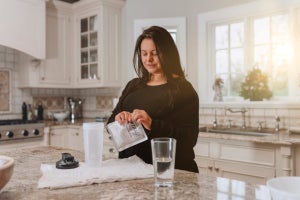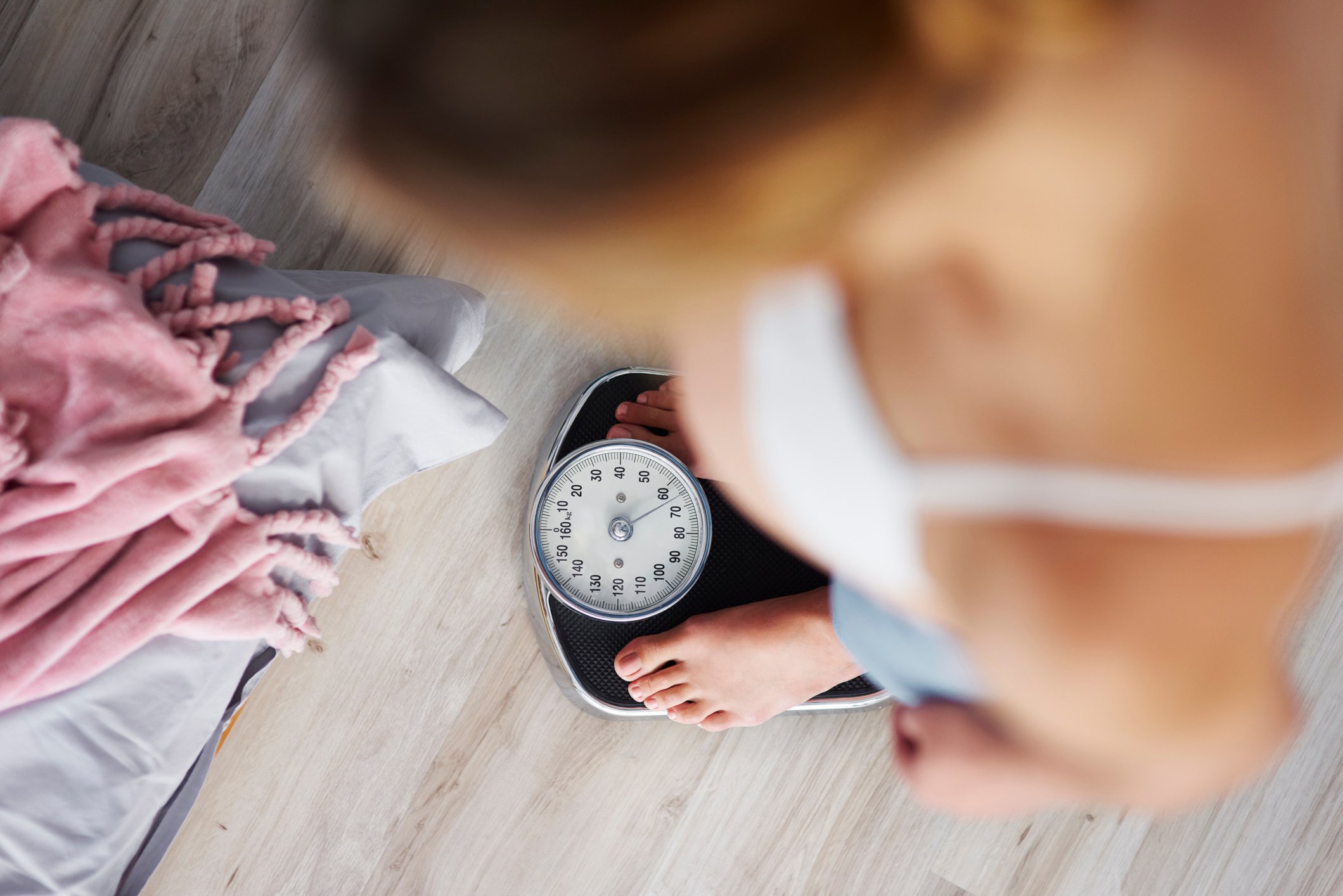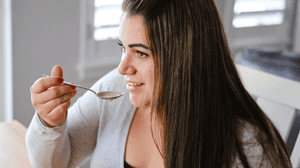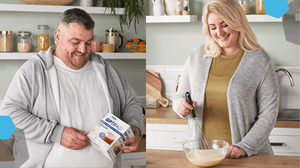
Weighing yourself regularly is not only a great way to track your weight loss results, but it is also important to keep a track of your hydration levels – which is important for your health throughout the program. Generally, weight loss should not exceed more than half a kilogram per day, so if your weight is down more than half a kilo in a day, aim to drink more fluid that day. If your weight is gaining and you are following your plan, speak to your doctor as you may be retaining some fluid.
How to weigh?
We recommend that you weigh yourself first thing in the morning, before you eat or drink anything, after you go to the toilet with little or no clothes, and before a shower to avoid wet hair. If you can’t do that, try to weigh yourself at the same time of day to try and minimise inconsistencies as much as possible.
We recommend that you weigh yourself once a week only. How often you weigh yourself is completely up to you, however if you weigh yourself daily it is not unusual for your weight to fluctuate based on your hydration levels which can give you false information and can potentially de-motivate you.
How you stand on the scales also makes a difference. First make sure you are standing on reliable scales. Have the scales on a hard surface, not carpet or uneven ground. Stand up straight looking forward – if you have to move your body to see the number on the scales then it’s important to have a digital set that will record the weight until you get off the scales in order to get an accurate reading.
When not to weigh?
The following may give an irregularly high reading.
- You are female and your period is due.
- You are on prescribed fluid tablets and you have forgotten to take your tablet as prescribed.
- You have cheated your diet – don’t punish yourself, get back on track and see your progress in a few days’ time.
- You are constipated. Make sure you are consuming the right amount of water, vegetables and take a fibre supplement if required.
- You have added extra salt or salty condiments in your diet – salt can make people retain fluid and may give you a higher reading.
- Weighing yourself is making you feel sad or anxious.
- You are starting to rely too much on your weight as feedback, if you are weighing yourself more than once a day, speak to your healthcare professional as this may be turning into a negative habit.
How do you react to your weight?
Weighing yourself is only beneficial if it is having a positive influence on your progress. If you are getting anxious about weighing yourself or it is having a negative impact on the rest of the day, then stop weighing yourself at home and see your healthcare professional for either a weekly, fortnightly or monthly weigh in. Your healthcare professional should have some basic procedures for you to follow to minimise any inconsistencies in your weight and will also be able to explain any discrepancies. Many people have a long emotional issue with their weight and healthcare professionals are trained in talking about these issues. So don’t be shy, talk to your healthcare professional so that you can resolve any anxieties and help you move forward in a positive direction.
How old are your scales?
Scales do not last forever. Prolonged use over time may make them inaccurate, so if you have had your scales for a long time, it may be time to have them re-calibrated or purchase some new ones. If you do like to monitor your progress then investing in some good quality scales can be worth it.
Extra benefits
Many scales now also include bio-impedance readers that will also record your percentage body fat. Remember hydration and body temperature will greatly affect these readings, so it usually takes a healthcare professional to interpret the results. Try to make sure your hydration levels are stable and you weigh yourself at the same time each day to minimise any inconsistencies. It is best to fast for up to 2 hours prior and not to have done any exercise or activities that will raise your body temperature. First thing in the morning before eating is usually preferable.
Taking waist circumference measurements
Taking your waist circumference measurement can act as a guide to tell you the amount of body fat you have and your risk of developing a chronic disease such as type 2 diabetes, heart disease, stroke, high blood pressure and some cancers. Waist circumference compares closely with your Body Mass Index or BMI.
Taking waist measurements is also a good measure of your progress on the OPTIFAST Program. As your body starts to use up your fat stores you should also see a reduction in your waist circumference. You may even see a reduction in your size or waist measurements before seeing any significant reduction on the scales.
How to measure your waist circumference
To measure your waist, follow these four easy steps.
- Place the tape around your middle directly against your skin, halfway between your lowest rib and the top of your hipbone, roughly in line with your belly button.
- Relax and breathe out
- Make sure the tape is snug, without compressing the skin
- Record measurement.
For most people, a waist measurement higher than the following cut off points is associated with an increased risk of chronic disease.
Increased Risk Greatly Increased RiskMen 94 cm 102 cm
Women 80 cm 88 cm
Consider talking to your doctor if your waist circumference exceeds these measures.
Are these waist measurements suitable for all groups?
The waist measurements above are recommended for Caucasian men, and Caucasian and Asian women. Recommended waist measurements are yet to be determined for all ethnic groups. Talk to your doctor or other healthcare professionals to find out more.
Referenceshttp://healthyweight.health.gov.au/wps/portal/Home/get-started/are-you-a-healthy-weight/waist-circumferencehttp://www.heartfoundation.org.au/your-heart/know-your-risks/healthy-weight/waist-measurement

Related Articles








